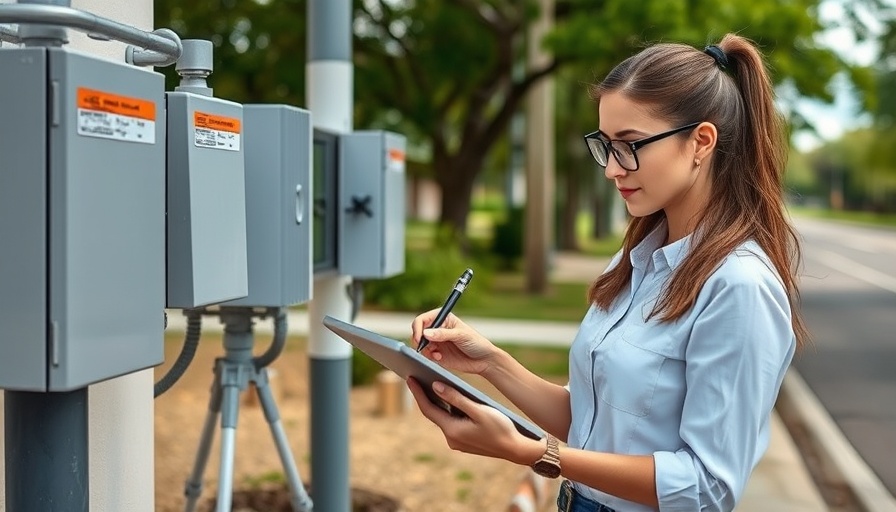
Why Your Home Maintenance Matters
For homeowners, particularly those in the beautiful locales of Folsom and El Dorado Hills, maintaining your property isn't just a matter of pride; it's also crucial for your wallet. As we've witnessed, rampant natural disasters and escalating home values have contributed to rising insurance rates across the United States. The insurance market is becoming more sensitive to the condition of homes, and insurers are more likely to raise premiums or deny coverage if a home is not properly maintained. By investing in key home improvement projects, you not only enhance your living space but could significantly lower your insurance costs.
Unlocking Discounts: The Impact of Security Systems
One of the simplest and most effective ways to start lowering your insurance rates is by adding a security system. Insurers typically offer discounts of at least 5% for basic systems, such as smoke detectors and dead-bolt locks. If you opt for advanced technologies, like monitored fire and burglary alarms, potential discounts can soar to 15-20%. While the initial setup costs can range from $1,500 to $2,500 plus monitoring fees, the long-term savings on your premiums can make it worth the investment. Always check with your insurer to understand what specific systems they recommend for optimal savings.
Reducing Fire Risks: Upgrading Electrical Wiring
Outdated electrical systems pose significant fire risks, making them a top concern for homeowners and insurance companies alike. Upgrading your electrical wiring not only reduces these risks but can also lead to lower insurance premiums. Costs to rewire a home typically range from $4 to $12 per square foot, whereas upgrading an electrical panel can cost between $2,000 to $10,000. These upgrades can enhance safety while showing your insurer that you’ve taken proactive measures to mitigate risks.
Plumbing Upgrades: Protecting Against Water Damage
Water damage is one of the most common reasons for homeowner claims. Therefore, upgrading your plumbing systems can serve as a preventive measure to lower your insurance premiums. Simple projects like replacing old water heaters or aging pipes with modern materials can significantly reduce the risk of leaks. On average, a new hot water tank will cost around $2,000, but the savings on your insurance premiums over time can justify the expense. Whether you're a DIY enthusiast or prefer to hire professionals, keeping plumbing systems updated is a wise investment.
HVAC Systems: Efficiency and Safety
Your home's HVAC system plays a crucial role in its overall safety and efficiency. Insurance companies favor modern systems that are less likely to cause issues. Therefore, if your HVAC system is over ten years old, consider an upgrade. Not only can this prevent breakdowns that lead to claims, but switching to natural gas or electric systems can also lower your insurance costs. Update costs can vary widely, averaging between $6,000 to $13,000, but proactive maintenance will yield dividends down the line.
Roof Maintenance: Keeping Coverage Intact
Your roof is another key factor influencing your insurance premiums. Homes with poor or outdated roofs are seen as high-risk by insurers and may even result in denied coverage. Routine maintenance, such as cleaning off debris, repairing leaks, and replacing older shingles, greatly reduces risk. Homeowners are often surprised by how much these small tasks can mitigate future expenses.
Realizing the Benefits of Home Maintenance
Home improvement projects don’t merely beautify your living space—they represent a strategic way to safeguard your finances. By completing these manageable upgrades, you can enhance your home's safety, value, and insurability. The initial investment will reap significant rewards, providing peace of mind and potentially substantial savings on your insurance premiums.
Take Action Now
The thought of budgeting for these projects may feel overwhelming. However, consider this an investment in your home’s future. Prioritize the projects based on what your insurance provider offers discounts for, and you may find that you're already ahead! Start with simple upgrades and gradually move toward larger projects. Contact local contractors or even local DIY groups to get the best advice tailored to your specific home for optimal benefits.
For more valuable insights on home improvement and other essential homeowner responsibilities, stay informed and keep proactive in your home maintenance endeavors.
 Add Row
Add Row  Add
Add 




Write A Comment